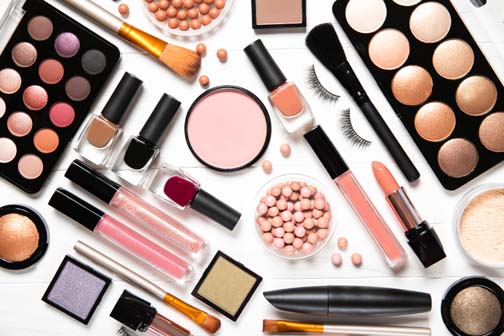Attention all DealDash.com shoppers!

Did you see the many new beauty products now up for auction? Just look at all of these new beauty products:
- Eye shadow bundles — set of 12 and set of 16
- Lipstick bundle — set of 8
- Highlighter bundle – set of 8
- Lip and cheek stick bundle – set of 10
- Eye crayon bundle – set of 11 and
- Foundation bundle – set of 10
Some women have what is called “natural beauty.” Regardless, even women with “natural beauty” wear makeup to enhance their beauty even more.
But shopping for beauty products might not be just for women. Some men might want to do some early Christmas shopping for a special woman in his life—his wife, girlfriend, sister or mother. Most women would greatly appreciate receiving some beauty products for a gift.
Did you ever wonder where the idea of beauty came from in the first place?
Define Beauty
If we were to go out in public and randomly ask various men to describe their idea of what a beautiful woman looks like we would most likely get many different answers. Some men might prefer women with dark hair who wear very heavy makeup, while others might prefer women with blonde hair or red hair who wear only light makeup. Obviously, beauty means different things to different people.
In the 16th Century a Greece philosopher Plato introduced the phrase “Beauty lies in the eyes of the beholder.” Later, in her novel Molly Bawn published in 1878, Margaret Hungerford changed a few words and wrote: “Beauty is in the eye of the beholder.”
Ever since that phrase has been repeated so often it has become familiar to people all over the world.
History of Makeup
According to research the use of makeup goes back at least 6,000 years to Ancient Egypt. Before makeup was targeted to women, it was genderless. In Ancient Egypt, both men and women wore makeup. A kind of soft rock known as red ochre was crushed and used as a pigment. Kohl was also used to darken the eyes. Men who wore heavy eyeliner and colorful eyeshadow were recognized as wealthy.
In Ancient Egypt; scented oils, ointments, and creams were used to mask body odor and protect their skin from the elements. Many Egyptian tombs contained makeup canisters and kits. Cleopatra used lipstick that got its hue from ground carmine beetles, while other women used clay mixed with water to color their lips.
About 5,000 years ago, ancient Sumerian men and women were possibly the first to invent and wear lipstick. They crushed gemstones and used them to decorate their faces, mainly on the lips and around their eyes.
In the middle Ages it was thought sinful and immoral to wear makeup by Church leaders, but many women still did so. Pale faces were a trend during the European Middle Ages and in the 16th century, women would bleed themselves to achieve pale skin.
In the beginning of the 1900s lemon juice was consumed or applied as a face tonic to achieve a feminine complexion. Soon exclusive beauty salons began sprouting up in major cities. By the 1920s women across America and Europe started using lipsticks, eye-shadows, mascara and pan sticks. By the 1930s makeup had become much more refined – which was influenced by Hollywood. Eyebrows were pencil thin and lips were full again.
By the 1940s makeup had become a huge industry, and the 1950s became known as the “glamorous decade.” Women were wearing creams, foundations and shadows were the “in thing” but rouges were less emphasized than in the 1940s. By the early 1960s the makeup look was all about elegant eyes, pale pink hues and loads of powder. The early 1960s makeup look was all about elegant eyes, pale pink hues and loads of powder.
While the 1960s foundation can be compared to movie set makeup, modern foundation covers flaws without obscuring the skin. Today’s foundation is light, almost translucent, so the natural skin tones can show through.
Knowing that today’s beauty products are better than ever, it’s nice to know we can now shop for all the makeup we need right here on DealDash.com. We can stay young looking longer by covering up our flaws. Happy shopping everyone!
This sponsored blog post was submitted by: Barbara L. Sellers. Barbara was compensated by DealDash for this blog post. Blog posts are written by real DealDash customers. The opinions and advice here represent our customers’ views and not those of the company.




